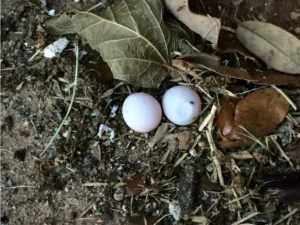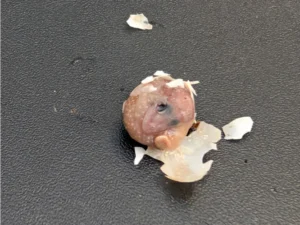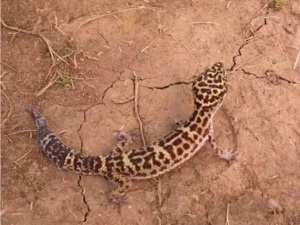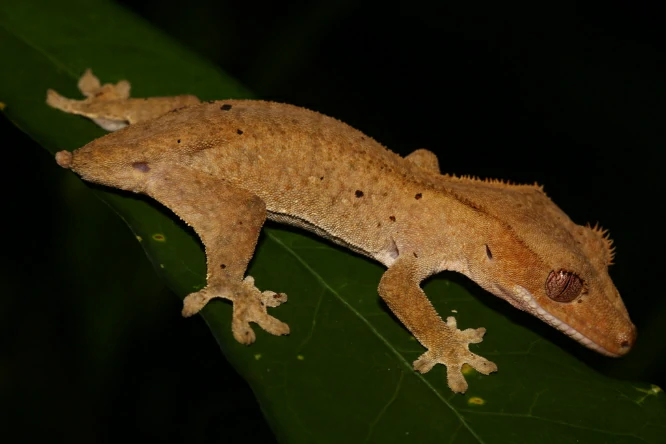It’s early morning, and you notice your female gecko quietly perched in the corner of her tank, a little bloated and unusually still. You start to wonder, could this be the end of her journey? Do geckos actually die after laying eggs?
No, geckos don’t die after laying eggs. Unlike some insects or animals that reproduce once and then die, geckos are not programmed to die after having babies. They can lay eggs multiple times during their lives as long as they stay healthy and live in a supportive environment.
Actually, this idea probably comes from watching wild geckos after they’ve reproduced under stressful conditions.
In the wild, things like predators, lack of food, sickness, or harsh weather can make a gecko die shortly after laying eggs. But it’s not the egg-laying itself that kills them.
In captivity, with proper care, your gecko can live for many years and lay several clutches of eggs.
How Gecko Reproduction Actually Works
Female geckos reach sexual maturity at different ages depending on the species. Some as early as six months, others taking up to a year.
Once mature, they can produce eggs several times a year.
Geckos have internal fertilization, which means the male deposits sperm inside the female, and then her body starts forming eggs. She will deposit them in safe, hidden spots, like under rocks, in soil, or in a moist corner of her tank.

For many geckos, laying eggs isn’t a one-time thing. For example, leopard geckos, which are popular pets, can lay two eggs every 2–4 weeks during the breeding season.
Crested geckos, another common species, can lay multiple clutches each year too. As long as she’s healthy and well-fed, there’s no reason a female gecko would die after laying a clutch.
Even in smaller or “fragile” species, egg-laying is just a normal part of life. Geckos have evolved to lay eggs multiple times because life in the wild is tough.
By spreading reproduction over several events, they increase the chances that some of their babies will survive.
Why People Think Geckos Die After Laying Eggs
A lot of confusion comes from watching stressed or malnourished geckos. Imagine a wild female gecko struggling to find food, water, or shelter.
She uses a lot of energy producing eggs, and then she might get eaten by a predator or fall ill from the environment soon afterward.

To someone watching, it looks like laying eggs caused her death, when really it’s just how tough life is in the wild.
Another factor is egg binding, which is when a female gecko can’t pass her eggs. This can be dangerous and even fatal if it’s not treated.
In captivity, keeping an eye on diet, temperature, humidity, and hiding spots usually prevents this.
If a gecko dies right after laying eggs, it’s usually because of health problems, not because of the egg-laying itself.
Egg-Laying Uses a Lot of Energy, But It’s Not Fatal
It’s true that producing eggs takes energy. Geckos need enough food to replace the calcium, protein, and other nutrients they use while reproducing.
A female low on calcium can develop metabolic bone disease, which weakens her and can make laying eggs risky. But with proper care, a gecko recovers quickly and can lay more eggs in the future.
Think of it like running a marathon. It’s exhausting, and you need food and rest afterward. But it doesn’t kill you if you take care of yourself.
For geckos, laying eggs is the marathon, and good care is their food, rest, and safe environment.
How to Keep Your Egg-Laying Gecko Healthy
If you have a female gecko, the goal is to help her lay eggs safely and recover quickly. Here are some natural, practical ways:
-
Make sure she’s eating a balanced diet with plenty of calcium and vitamins. Insect-eating geckos do well with bugs dusted with calcium powder.
-
Give her a quiet, safe place to lay eggs. Many geckos like hidden spots, moist soil, or egg-laying boxes if they’re in a tank.
-
Watch her after she lays eggs. She might be a little tired or quiet for a day or two. That’s normal. But if she seems very weak, won’t eat, or looks bloated, check for egg-binding.
-
Avoid stressing her. Sudden changes in temperature, bright lights, or too much handling can make recovery harder.
With these simple steps, most geckos bounce back from laying eggs and stay healthy for years.
Wild Geckos vs. Captive Geckos
Watching geckos in the wild can give a different impression than what happens in your tank.
Wild geckos face predators, competition for food, sickness, and rough weather, so they might not survive long after laying eggs.

It’s easy to think laying eggs is deadly, but it’s really just the tough conditions.
In captivity, geckos have no predators, get regular meals, live in stable temperatures and humidity, and can get vet care if needed. Laying eggs is just another part of life, not a death sentence.
Some species can even store sperm and lay fertile eggs long after mating. This means a female might lay several clutches over months or years without mating again. N
ature really has a clever way of keeping the species going.
When Egg-Laying Can Be Risky
Even though geckos don’t naturally die after laying eggs, problems can happen if conditions aren’t right:
-
Egg binding: The female can’t pass her eggs. Signs include swelling, straining, lethargy, or loss of appetite.
-
Nutritional deficiencies: Low calcium or vitamin D3 can weaken her and make laying eggs dangerous.
-
Dehydration or poor environment: Wild geckos might struggle in drought or cold. In captivity, wrong humidity or temperature can stress her.
These don’t mean all geckos die after laying eggs. They just show what can go wrong if she’s not cared for properly.
With good care, these problems are usually avoidable.
Why Geckos Keep Laying Eggs
Geckos are built to reproduce many times. In some species, females lay dozens of eggs in their lifetime.
Laying multiple clutches is a survival strategy. Spreading out reproduction increases the chances that some babies survive the wild’s challenges.
Even though laying eggs uses energy, geckos are made for it. They eat well, rest afterward, and keep going. It’s a normal, natural part of life.
Conclusion
So, do geckos die after laying eggs? Absolutely not. Laying eggs is a normal, healthy part of a female gecko’s life. With the right care, she can lay multiple clutches over many years.
Death after egg-laying usually only happens under stressful or unhealthy conditions, or with untreated problems like egg-binding.
In the wild, dangers might make it look like reproduction is deadly, but geckos are designed to survive and thrive through many reproductive cycles.
With a safe environment, good food, and careful observation, your gecko will live on long after her eggs hatch, continuing her little adventures for years.
Hi, my name is Ezra Mushala, i have been interested animals all my life. I am the main author and editor here at snakeinformer.com.

